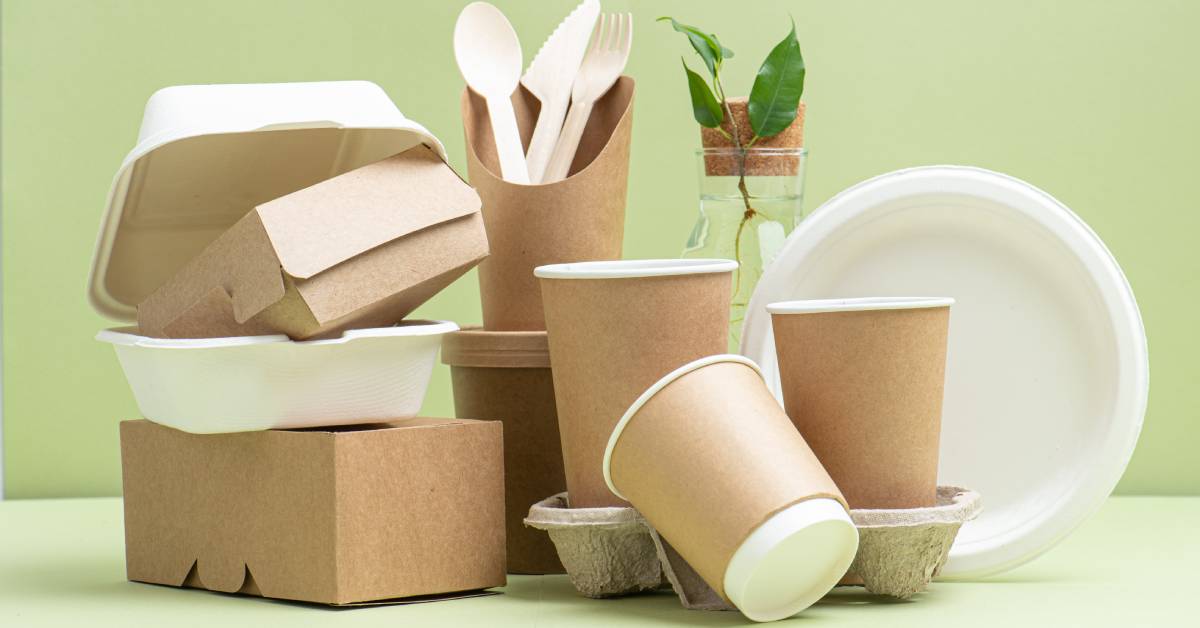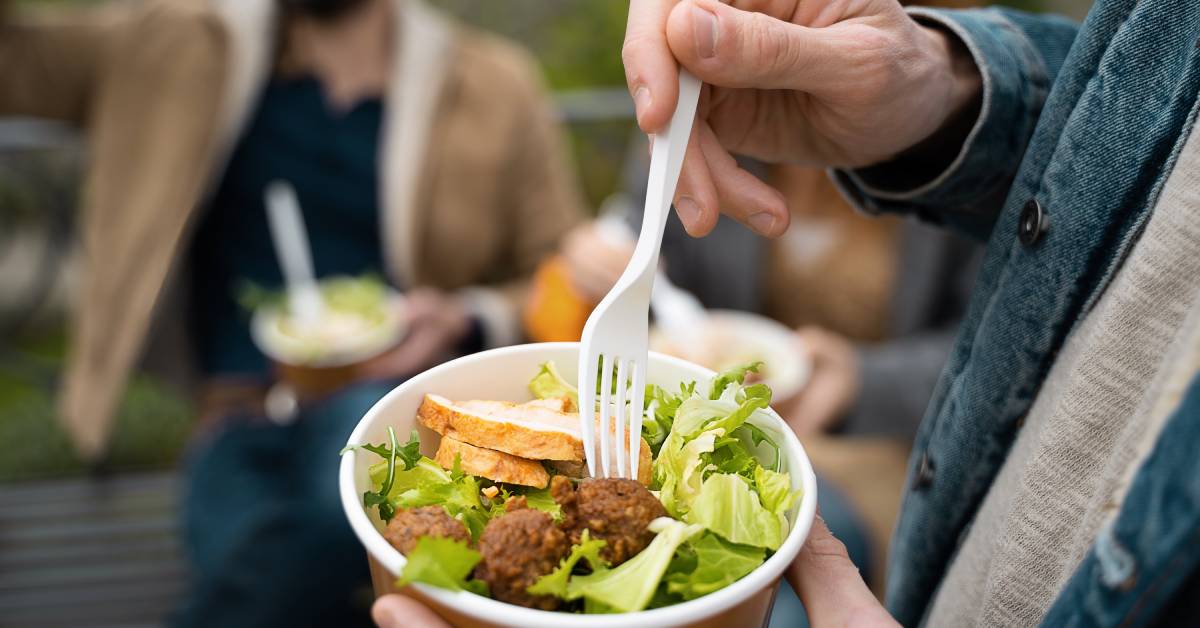Are My Dishes Compostable or Recyclable?
As sustainability takes center stage, many consumers and businesses alike are rethinking the impact of single-use dishware. Determining whether items are compostable or recyclable can make a significant difference in minimizing waste and supporting a healthier environment. However, navigating the nuances of eco-friendly options isn’t always straightforward. Read on to learn whether your dishes are compostable or recyclable so that you can make informed choices.
Compostable vs. Recyclable

Before diving into specifics, it’s essential to distinguish between compostable and recyclable items. Compostable products break down into natural, non-toxic elements in a compost environment, eventually turning into nutrient-rich soil. On the other hand, recyclable products are processed to create new materials, which keeps them in circulation and reduces the need for virgin resources. Knowing these differences lays the foundation for choosing the right materials for your needs.
How To Recognize Compostable Items
Compostable dishes are typically made from organic materials like corn, sugarcane, and bamboo. These materials degrade naturally in commercial composting facilities and, in some cases, in home compost setups. Check for certifications such as BPI (Biodegradable Products Institute) on products to ensure they meet composting standards. A clear label can simplify your efforts to choose materials that support composting.
Recognizing Recyclable Dishes
Recyclable dishes are often made of materials like certain plastics, glass, and aluminum. These items usually display a recycling symbol on their packaging and may display a number indicating the type of material use in the product’s manufacturing. Not all recyclable products are created equal, so it’s crucial to confirm which items your local recycling center will accept. Choosing certified recyclable dishes ensures they can be part of a sustainable life cycle.
What Materials Are Commonly Compostable?
Materials commonly used in compostable dishware include paper, cardboard, bamboo, sugarcane bagasse, and some biodegradable plastics. Products made from these materials decompose relatively quickly in a composting environment, turning back into organic matter. It’s worth noting that compostable plastics usually require commercial composting facilities to break down effectively, so make sure you have access to these facilities if you choose such products.
Materials Commonly Found in Recyclable Dishes
Recyclable dishes are often made from plastics like PET, HDPE, or PP, as well as aluminum and certain types of glass. These materials are well-suited for recycling programs and can be repurposed multiple times, reducing the need for new raw materials. While not all recycling facilities accept every type of plastic, products with the recycling symbol typically indicate whether they can be processed for reuse.
How To Compost Biodegradable Dishes
To compost biodegradable dishes, first check whether your home or commercial composting system can handle the material. If you have a home composting system, break the dishes into smaller pieces to accelerate the breakdown process. Commercial facilities, with their high temperatures and controlled environments, can process compostable plastics and other hard-to-decompose items more effectively. Knowing the capabilities of your composting system will help ensure proper disposal.
How To Recycle Properly
Recycling dishes requires a bit more attention than tossing items into a bin. Ensure the dishes are clean, as contamination can render entire batches of recyclables useless. For plastic items, check the recycling code to confirm that your facility accepts the type of plastic in question. Separating recyclables correctly and following local guidelines will increase the likelihood that your items get repurposed.
Limitations of Home Composting
Home composting works well for organic waste and certain paper products, but it may not be suitable for compostable plastics or heavily processed materials. Items like bioplastics often need the higher temperatures of industrial composting facilities to break down fully. If you’re committed to composting at home, choose natural materials like bamboo or cardboard for your dishes, as they decompose faster and more reliably.
What To Look for in Bulk Purchases
Buying compostable or recyclable dishes in bulk can be a practical and eco-friendly choice, especially for events or business needs. Look for compostable and recyclable products that are certified by reputable organizations like BPI or the Forest Stewardship Council (FSC). Bulk purchases that are clearly labeled save time and reduce waste, making them an effective option for eco-conscious buyers.
Biodegradable vs. Compostable
It’s easy to confuse biodegradable with compostable, but they are not the same. Biodegradable simply means an item will break down over time, but not necessarily in a compost-friendly way or within a specific timeframe. Compostable items, however, are designed to break down in composting environments, ideally leaving no toxic residue. Choose compostable over merely biodegradable items to ensure the least environmental impact.
Can Disposable Plates Be Compostable?
Many disposable plates are compostable, provided they’re made from materials like paper, bamboo, or sugarcane. Be cautious of coatings on certain plates, as they can hinder composting. For a genuinely compostable option, opt for uncoated plates or ones certified as compostable by a recognized organization. Compostable plates are perfect for eco-friendly gatherings, offering a way to reduce waste without sacrificing convenience.
How To Dispose of Mixed Material Dishes
Mixed material dishes—like those made of plastic lined with foil—are tricky to recycle or compost, as different materials can’t easily separate. Unfortunately, these dishes often end up in landfills. If you’re concerned about sustainability, try to avoid mixed materials and instead choose single-material dishes that are either compostable or recyclable. Single-material items simplify disposal and ensure a lower environmental footprint.
Alternatives to Disposable Dishes
For those seeking a sustainable approach, consider reusable options made from durable materials like glass or stainless steel. While these aren’t compostable or recyclable in the conventional sense, they reduce waste by lasting longer. Many businesses and individuals choose reusables for a greener footprint, avoiding the challenge of disposal entirely. If possible, invest in durable dishes to help minimize your overall environmental impact.
Choosing the Right Containers for Your Business

If you’re a business owner, selecting eco-friendly containers can enhance your brand’s reputation as a sustainable company. Many customers today prefer compostable or recyclable options, so offering these types of products can differentiate your business. Assess the types of dishes you frequently use and look for compostable or recyclable alternatives. Investing in eco-conscious dishware supports your business’s sustainability goals and appeals to environmentally aware customers.
Bulk To-Go Containers: Compostable or Recyclable?
When ordering bulk to-go containers, it’s essential to know whether they are compostable or recyclable. Compostable options, which are made from materials like bagasse or paper, are ideal for businesses with access to commercial composting facilities. Recyclable containers, such as those made of certain plastics or aluminum, can also serve eco-conscious needs. Many suppliers offer clear labeling, so you can be sure you’re ordering the right type. Choosing compostable or recyclable bulk to-go containers allows your business to minimize waste while meeting consumer demand for sustainable packaging.
Now that you know the ins and outs of compostable and recyclable dishes, you’re better equipped to make sustainable choices. Selecting the right compostable or recyclable options, like bulk to-go containers, brings you one step closer to reducing waste and supporting a greener planet.
Recent Posts
-
Dos and Don'ts of Storing PET Cups & Lids
Your restaurant's success depends on countless small details, and the proper storage of supplies ran …Feb 5th 2026 -
Common Mistakes in Ordering Restaurant Supplies
Running a restaurant means juggling dozens of tasks every single day. Between managing staff, pleasi …Feb 4th 2026 -
Benefits of Windowed Bakery Boxes for Display
Imagine a customer’s eyes lighting up as they spot your stunning pastries through a crystal-clear wi …Jan 15th 2026




